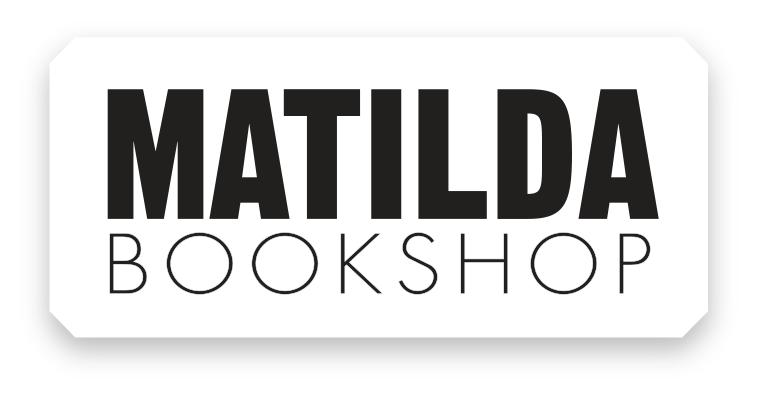
AUTHORS
Zoe Dubno Q&A
Zoe Dubno is a writer from Manhattan who lives in New York and London. She has an MFA from Rutgers University, Newark. Her fiction has appeared in Granta.
Why do you tell stories?
My oldest friend coined the term “Zoe Dubno Spicy Edit” to refer to my version of a mundane story embellished to make it more interesting for everyone listening. One could of course call this “lying,” but I prefer his version. To tell the truth and get people to listen you need to spicy edit.
Without talking about plot in any way, what would you say your book is about?
Sometimes life sucks and is unfair. Finding the people that make it worth living is hard. Often you won’t even realize who those people are until it’s too late.
The novel is a modern reimagining of Thomas Bernhard’s The Woodcutters, eviscerating the 2020s New York art and literary scene and featuring shallow, exploitative, materialistic pseudo-intellectual characters who desperately want to be at the centre of it, in the same way Bernhard’s novel eviscerated the 1970s/80s Vienna art scene. What spoke to you about The Woodcutters when you first read it, and how did it come to inform your work?
Your question gets straight to the heart of it! I read the Woodcutters and was stunned, not only because it was so funny and addictive and full of amazing ideas, but also because I thought my god… I know these people. I loved reading Bernhard’s takedown of that Viennese world, and I figured I had a lot to say about a very similar New York. Much in the same way Zadie Smith based On Beauty on Howard’s End, or even the way that many contemporary novels follow the classic “marriage plot” I thought, this dinner party form inner monologue is a really great structure that can contain a lot of what I want to say. Of course, the book deviates from Woodcutters but it was almost like a new technology of writing for me.
When I first read Happiness and Love, I described it as a novel that could be subtitled Portrait of the Artist As One Long Primordial Scream. Is that anything close to how you were feeling when you wrote it?
I like it!
The style of the novel induced a kind of hypnosis in me, constructed as it is over one unbroken paragraph with deliberate use of repetition. How do form and content relate in your work?
When we are sat in front of old friends, our past with them is in the back of our minds the whole time, so I think the unbroken, digressive paragraph allows for the way we genuinely experience people we know to come through. The repetition also mirrors the intrusive recurring thoughts that one has, especially with old frenemies. I am, however, currently working on a book with what I’ve been calling “normal paragraphs.”
How did you find the limitations of setting a novel over the course of a single evening - was it frustrating or liberating (or both)?
It was great, especially because the perspective allowed me to abandon linear time and shift wherever I wanted!
One of the internal transformations the protagonist undergoes during that single evening concerns her beliefs around art, and the performativity of some corners of the fine art world and art criticism. How did you gather your thoughts around that transformation and was it influenced at all by your time studying for an MFA?
Well, I did an MFA mostly on Zoom during Covid, so regrettably it didn’t really “transform” me so much as give me time and space to work and think, as well as incredible mentorship from my professors. I think that transformation honestly was something that happened externally, as I watched New York the city of my birth, youth, and present transform into something totally unrecognizable as the “edgelord” contingent moved in and took over. Luckily I think that wave has crested.
What else were you under the influence of (books, authors, ideas, art, or anything else) while writing this book?
I don’t think I’d have written this book without conversations with my friend Aria Dean who is a contemporary artist and theorist, her book Bad Infinity would be a good place to look at some of those…
Midway through writing this book I saw the travelling Surrealism exhibit, at that point at The Met, and it really struck me how this movement whose very real communitarian, Marxist, revolutionary, international politics are often whitewashed and left out of the conversation about them. Some things about the Surrealists made it into the novel.
There’s a reference to Sans Soleil, the film by Chris Marker which is something I watch almost as an antidote to the world I’m describing.
Beyond Woodcutters I would love to recommend Thomas Bernhard’s collected memoirs, which, like his novels are written in one continuous paragraph. The first volume Gathering Evidence, about his childhood, is my absolute favourite. Also his novel Wittgenstein’s Nephew.
I use Mozart’s Clarinet Concerto, and Lapsang Souchong tea as drugs. When I hear that opening clarinet in the Concerto it is my Pavlovian response to start working.
Which adjectives by readers and reviewers used to describe your writing most please you?
I like when they note the tenderness beneath the rage.
Tell us about your natural writing habitat.
I love to be social in the daytime, either with friends or just out and about in the city walking around. Then, I like to write in the evening, in my apartment with the Mozart on and some tea. Then some other music is OK. I like to listen to the radio– WFMU, NTS. Crucial in this writing habitat is the ability to lie down on the floor every fifteen minutes.


